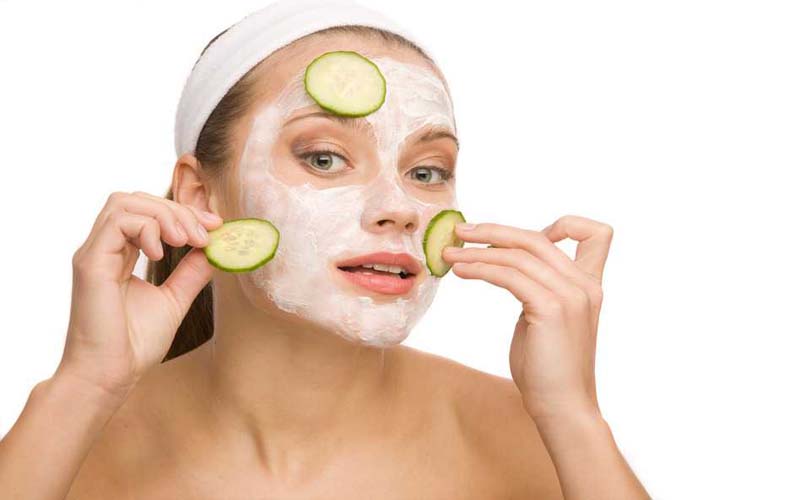Exfoliating:
Natural exfoliates such as lemon can remove the dead skin that plugs up pores and traps excess oil. After washing, squeeze a fresh lemon into a bowl. Gently apply to the face using a cotton wool ball. Leave for ten minutes, then rinse with cool water. If you have sensitive skin, dilute the juice with water. Repeat morning and evening.
Natural Face Masks:
Honey And Oatmeal Mask: Mix some oatmeal and honey (Manuka honey is particularly good because it has anti-bacterial properties) into a paste, apply to the skin and leave for 15 minutes. Rinse off thoroughly.
Marigold And Wheatgerm Oil Lotion:
Combine two tablespoons of pounded dried marigold leaves (from a health food store) with warmed wheatgerm oil. Strain the mixture and apply the liquid sparingly to the skin.
Careful Cosmetics:
Look carefully at labels. Pick products that are oil-free, non-acnegenic or noncomedonic When you wash, carefully remove all traces of make-up – but don’t scrub too hard.
Zinc:
Helps to heal tissue and prevent scarring. It also assists the body resist infection and inflammation. Take about 50mg of zinc per day, but avoid exceeding 100mg. Mushrooms, liver, seafood and sunflower seeds provide dietary zinc.
Acidophilus: Acidophilus lactobacillus provides the ‘friendly’ flora that inhabits the gut, preventing ‘bad’ bacteria from flourishing. If you have been taking antibiotics for acne, your levels of acidophilus may be depleted. Acidophilus can be found in live yoghurt or in capsules or tablets.
Vitamins A, B and C:
Vitamin A is believed to be effective in treating acne by reducing the amount of oil produced by the body. However, in large amounts it is toxic and must be avoided by pregnant women or anyone trying for a baby.
Stress-reducing vitamins such as B-complex can control acne, and play an additional role by helping to stabilise hormone levels. Vitamin C preserves a healthy texture and fights infection.
Dietary Dos and Don’ts:
Increase your intake of fresh fruit and vegetables, especially green vegetables, onions, garlic, carrots, wholegrains, watercress and cucumber. This will provide your body with excellent nutrition to fight infection and inflammation, and keep your immune system strong.
Avoid refined sugars, fried and junk foods, as well as diets high in meat, dairy produce and caffeine. Iodine has also been implicated in aggravating acne and is found in beets, celery, grapes and kelp.
Boiled Cabbage Water:
Many acne sufferers have heard anecdotal stories about boiled cabbage water healing acne.
The Acne Support Group reports that several members have found it successful, though others simply found it ‘disgusting’. Other people suggest freshly squeezed cabbage juice or leaves – both of which can be applied directly to the skin or eaten.
